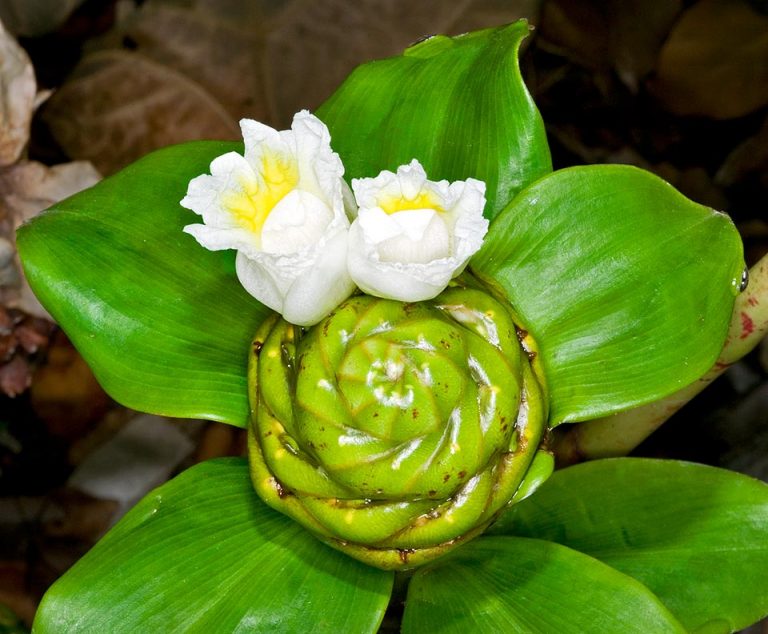Monkey Sugarcane (Costus afer) Herbal Benefits Healing Properties and Uses

Costus afer, also known as African Costus, Monkey Sugarcane is a perennial plant native to Africa. Costus afer has long, slender stems and small, oval-shaped leaves. is a versatile plant with both medicinal and socio-cultural significance. The Monkey sugar is rich in minerals and vitamins, and other chemical properties that attributes to its healing power in combating illnesses and diseases like
Health Benefits of Monkey Sugarcane (Costus afer) Plant
Let’s explore its benefits:
- Traditional Uses:
- Stomach Ailments: In traditional medicine, Costus afer is used to address stomach-related issues.
- Cough and Measles: It’s employed as a remedy for cough and measles.
- Malaria: Some communities use it to manage malaria symptoms.
- Eye Defects: Costus afer is associated with eye health.
- Hunch Back and Evil Repellents: Folklore attributes protective properties to this plant.
- Anti-Inflammatory Potential:
- Recent research suggests that Costus afer may have anti-inflammatory effects, making it relevant for managing conditions like arthritis and inflammation.
Remember, while traditional uses are valuable, consulting a healthcare professional is essential for personalized advice.
The Chemical Properties of Monkey Sugarcane (Costus afer)

the chemical properties of Costus afer (also known as Monkey Sugarcane):
- Phytochemical Composition:
- The stem of Costus afer contains various secondary metabolites:
- Alkaloids
- Saponins
- Flavonoids
- Tannins
- Cardiac glycosides
- Triterpenoids
- Among these, flavonoids are present in the highest quantity.
- The stem of Costus afer contains various secondary metabolites:
- Antimicrobial Potential:
- The ethyl acetate extract from Costus afer stem shows antimicrobial activity.
- Test organisms exhibited susceptibility to the extract, with zones of inhibition ranging from 6 to 26 mm.
- Bacillus cereus was the most sensitive, while Aspergillus niger showed some resistance.
- Medicinal Uses:
- Costus afer is traditionally used for various purposes:
- Stomach Ailments
- Diabetes
- Inflammation
- Arthritis
- Cough
- Measles
- Malaria
- Eye Defects
- Hunch Back
- Evil Repellents.
- Costus afer is traditionally used for various purposes:
- Potential Drug Development:
- The plant’s secondary metabolites could be isolated as drugs or lead compounds in drug development processes, adding value to its use in traditional medicine.
Remember, Costus afer offers a rich array of bioactive constituents with promising health benefits!
How to Use the Monkey Sugarcane (Costus afer) Plant as Herbal Medicine
Here are ways to utilize it as herbal medicine:
- Traditional Therapeutic Uses:
- Cough and Respiratory Problems: A stem decoction (made from mashed or chewed stems) mixed with sugarcane juice is taken to treat cough, sore throat, and respiratory issues.
- Eye Defects: Costus afer is associated with eye health.
- Malaria Management: It’s traditionally used to manage malaria symptoms.
- Other Ailments: It’s employed for treating stomach ailments and measles.
- Anti-Inflammatory Potential:
- Recent research suggests that Costus afer may have anti-inflammatory effects, making it relevant for arthritis and inflammation.
Remember to consult a healthcare professional before using any herbal remedies!
Safety and side effects of Monkey Sugarcane (Costus afer)
- Oral Consumption:
- Costus Oil: When consumed in amounts found in foods, costus oil is generally safe for most people. However, it’s essential to note that costus often contains a contaminant called aristolochic acid, which can damage the kidneys and cause cancer. Therefore, avoid costus products unless lab tests confirm they are aristolochic acidfree.
- Costus Root: Taken orally, costus root is possibly safe when used appropriately. Again, be cautious due to the potential presence of aristolochic acid.
- Skin Application:
- There isn’t enough reliable information to determine the safety of applying costus to the skin. Side effects remain uncertain.
- Allergy Warning:
- Individuals allergic to the Asteraceae/Compositae plant family (including ragweed, chrysanthemums, and marigolds) may experience allergic reactions to costus.
Remember to consult a healthcare professional before using herbal remedies, especially if you have specific health concerns!
External links
Health benefits of Monkey Sugarcane
safety and Side effects of monkey sugarcane plant
Chemical Properties of Monkey Sugarcane

